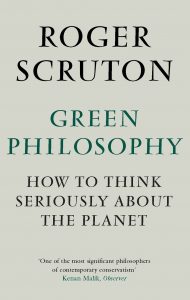

“By imagining it without pain, we are in danger of reducing our definition of love to that of a secure contract between individuals.”
The distinction made in this post between painful love and love as a secure contract made me want to say something in favour of boring, contractual love. The social contract might be seen as held together by love insofar as it entails duties or responsibilities as well as rights. According to Roger Scruton we live in an era of rights inflation driven by extreme egalitarian ideologies like Marxism that are just as destructive of social cohesion as is the inequality produced by unbridled capitalism. It’s interesting that these two ideologies enjoy a fairly comfortable symbiosis in the university system in the west, and that neither one is much interested in duty. Reading Francis Fukuyama has persuaded me that this is because people have largely forgotten what a hard-won achievement modern liberal societies are, and what the historical alternatives have been like.
A sense of duty can be a form of love for the body politic and for the neighbours one doesn’t know personally. It has the potential to help mitigate the extremes of capitalist economic life but also to mitigate the egalitarian extreme that regards all inequality of outcome as evidence that society is founded on an oppressive social hierarchy that needs to be torn down. Duty doesn’t preclude the kinds of love that involve high risk and high reward, great pain and great pleasure. However, I’d prefer a different account of high-risk love to the accounts that one comes across in French theory.
The latter are connected to the revolutionary Marxist politics that these same writers tend to espouse, but stormy love affairs are better kept in the private sphere. When talking about love in the context of politics I favour a less glamorous, more reformist love, because revolution is inherently violent and repetitive while reform can be quietly transformative, evolutionary, and a better ground on which to base social hope. Of course there may be oppressive societies where violent revolution is the only option, but there are no such societies in North America or Europe right now.